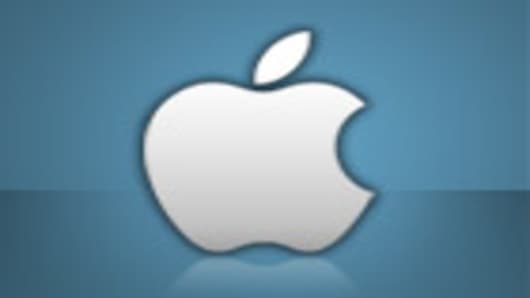Let the Apple hype machine begin. Two days from now, the iPhone 3G comes to market, the lines are already starting to form at some Apple stores nationwide.
JP Morgan says the new version is already sold out in the UK, the analysts are offering up some big-time sales projections, and the reviews of the phone are starting to trickle in, with the Wall Street Journal's Walt Mossberg and the New York Times' David Pogue weighing in today on the finer and lesser points of the device.
The reviews are mostly as expected: it's sleek, and fast, and *gasp, it actually does all the things that AppleCEO Steve Jobs said it would when he unveiled it last month. With other companies, that may come as a shock -- that a product performs as promised -- but with Jobs and Apple, well, he's become a "master salesman" because he routinely over-promises and over-delivers. Neat trick.
So let me focus on something that deserves a lot more attention: the upcoming Apple App Store, a new online Apple store that will post and sell third party software applications. And, if you believe iPhone's sales projections in the coming years, App could match or rival iTunes as a revenue stream down the road. Hype? Hundreds of thousands of developers have downloaded iPhone's software developer's kit so far, and with hundreds of millions of iPhone users five years from now (again, if you believe the sales hype), the App store could be a very busy place indeed.
When the company released iPhone's software developer kit last March, most of us in the room looked around at each other with wide eyes as we began mulling the prospects of tens of thousands of creative Apple fans developing their own programs for the iPhone faithful, using the same tools as Apple engineers to get the job done. The $100 million fund from Kleiner Perkins Caufield & Byers didn't hurt either. Third party software could be the hidden treasure in all this, letting the market itself keep the innovation pipeline going. As Jobs told me, the new iPhone is about the things consumers have been asking for, and delivering a whole bunch of stuff they didn't even know they wanted.
During the Worldwide Developer's Conference, a number of third party developers showed off robust apps they created specifically for iPhone. Sega and Super Monkey Ball, new programs from salesforce.comand eBay, as well as very cool programs from independent developers who simply had a good idea, and will now be able to post that good idea in front of millions of potential customers. I mentioned many of them in my live blog from the event that day.
Some of the programs are free, others could run $9.99 or so. And Apple will split the revenue with the software developers--70 percent goes to the developer, and Apple isn't charging credit card or hosting fees. And the developers themselves pick their own prices, unlike iTunes where Apple essentially dictates to the music labels what Apple will charge for THEIR product. Apple is still the gatekeeper and can determine what posts and what doesn't, but that's the company's right. It gets to play that role because it owns the hardware, owns the store, and the software developer kit programmers are using.
Fact is, Apple's new App store could become a major new revenue stream for the company and those posting programs on it. Many of these programs will work on your current iPhone as well, as long as you upgrade your software to the 2.0 OS. Though 3G will make the wireless download of these new programs far faster. And the automatic update notification is pretty cool too, letting you know the moment your existing new program is outdate and you now have the opportunity to upgrade.
So much focus this week on the hardware, and deservedly so. But with iPhone 3G, the longer term, arguably more meaningful story is really about Apple's new operating system for it, and the potentially millions of programs from from third party developers, who could end up turning into the real stars of the iPhone story, and a competitive advantage that Research in Motion, Nokia and Microsoft just can't match.
Questions? Comments? TechCheck@cnbc.com


